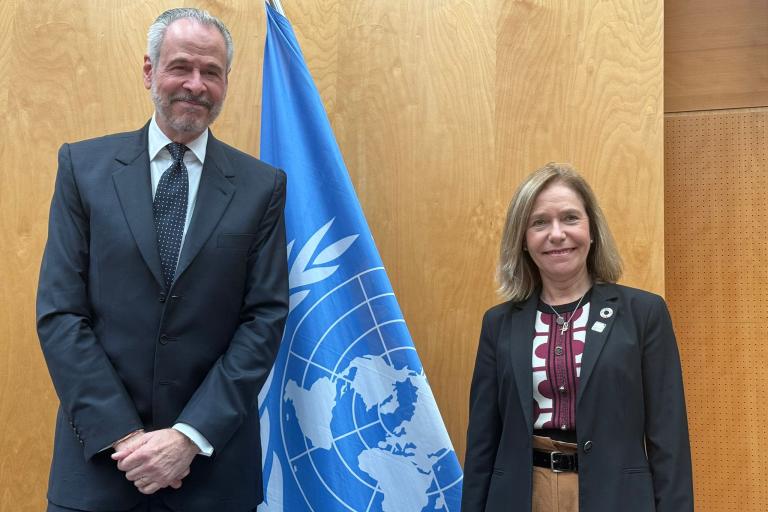COP30 Presidency outlines priorities and vision at WMO

COP30 President-designate, Ambassador André Corrêa do Lago said the negotiations, from 10-21 November in the heart of the Brazilian Amazon, seek to galvanize an “Action Agenda” embracing all levels of policy-makers, businesses, civil society and indigenous groups – and not just central governments.
“It is an agenda for job creation and people’s lives. And for that we need organizations like WMO where everything started,” he said.
WMO organized successive World Climate Conferences which laid the foundations for the Intergovernmental Panel on Climate Change and the UN Framework Convention on Climate Change and its Conference of the Parties.
“President Lula wants this to be the COP of truth. He wants people to be told the truth about how climate change will affect their countries,” said Ambassador André Corrêa do Lago, citing the impact on democracy, elections, and access to technology and finance.
The Brazilian Presidency has designated COP30 as the “implementation COP,” with countries being urged to commit to more ambitious climate action plans called Nationally Determined Contributions (NDCs) to implement the Paris Agreement.
It is a decisive year – and not just because it marks the tenth anniversary of the Paris Agreement.
The lower Paris Agreement temperature target of keeping temperatures to 1.5°C below the pre-industrial era is in jeopardy. The past ten years were the warmest on record and 2024 was the first calendar year to exceed 1.5°C above the pre-industrial era.
“COP30 in Belém will be more than just a climate conference,” WMO Secretary-General Celeste Saulo said in a welcome address to delegates.
“COP30 aspires to be a turning point, a moment when the world shifts from ambition to implementation. At the heart of this transformation lies science. Science is our compass,” she said.
“Science is clear: extreme weather and climate change impacts are worsening. The question before us is not whether we act, but whether we act in time, together, and with the courage required. The cost of action may seem high. The cost of inaction is much higher,” said Celeste Saulo.
She highlighted three imperatives:
- Scaling up Systematic Observations and Research.
- Delivering on Adaptation and Early Warnings for All.
- Increasing the volume and accountability of climate finance
The Brazilian Presidency has called COP30 a “Global Mutirão for Sustainability.” In other words, a collective effort and a shared outcome guided by a spirit of cooperation. It has chosen 30 special envoys to create a direct bridge between presidency and sectors like business.
Ambassador André Corrêa do Lago said that the Presidency is engaging businesses – for instance Brazil’s mighty food sector – and indigenous groups to complement the formal negotiating process between governments.
“We aim at a completely new dynamic and this dynamic is driven by science,” he said.

